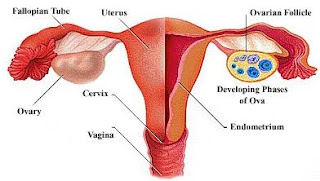HOW TO START THE ONION FARMING BUSINESS
Onions are widely used in cooking. They add flavour to dishes such as stew, soup and salads. Thus the demand of onions is all parts of the world. So this basically poses lucrative prospects for venturing into onion farming.
1) LAND: Onions can grow well on a wide range of soil types, including sand soil, fine textured clays, however good fertile sandy loam soil is usually the best soil type. This is because it has a low sulphur content and is well drained. It allows normal development of the onion bulb, and has a good capacity of holding water. Another important factor to consider is the pH of the soil, as it should be ideally in the range of 5.0-6.8 to enable the optimum growth of the bulb onions. Your onion production business plan should take into account the cost of purchasing or renting the land.
2) LAND PREPARATION: Land preparation must be properly done to ensure the soil is ready for the onions. The range of machinery and equipment needed for your onion farming business depends on the scale of production. Adequate water supply is also important meaning that irrigation is necessary. Onions can thrive quite well by the use of drip irrigation thus making the required amount of water less. The onion farming business plan should include the costs of acquiring and hiring the various machinery and equipment.
3) ONION VARIETIES: Onion varieties are classified into three categories as short-day, intermediate-day and long-day types and this reflects the hours of sunlight which will trigger bulb formation. Short day varieties need 10 – 12 hours of daylight , intermediate-day varieties need 12-14 hours of daylight while long day varieties need 14 – 16 hours of daylight. Your choice of which onion variety to use will also depend on variety of other factors: time to maturity, yield, availability of seeds, target market preference, season, fruit quality adaptability, disease resistance among other factors.
4) INPUTS: It is important that you purchase your onion seeds from certified onion seed suppliers. If you opt for onion seedlings, then source them from reputable nurseries. If you buy poor quality onion seeds, your onions will not grow to their full potential and you will have poor yields. Fertilizers are required to support the efficient growth of your onions, by providing all the nutrients needed by onions to grow to their full potential. Essential nutrients needed for the growth of onions include potassium, phosphorus and nitrogen. Organic matter is also important in onion farming. Herbicides, for effective weed control at your farm. Pesticides and fungicides are required for protecting your bulb onions plants against insects and fungi.
1) LAND: Onions can grow well on a wide range of soil types, including sand soil, fine textured clays, however good fertile sandy loam soil is usually the best soil type. This is because it has a low sulphur content and is well drained. It allows normal development of the onion bulb, and has a good capacity of holding water. Another important factor to consider is the pH of the soil, as it should be ideally in the range of 5.0-6.8 to enable the optimum growth of the bulb onions. Your onion production business plan should take into account the cost of purchasing or renting the land.
2) LAND PREPARATION: Land preparation must be properly done to ensure the soil is ready for the onions. The range of machinery and equipment needed for your onion farming business depends on the scale of production. Adequate water supply is also important meaning that irrigation is necessary. Onions can thrive quite well by the use of drip irrigation thus making the required amount of water less. The onion farming business plan should include the costs of acquiring and hiring the various machinery and equipment.
3) ONION VARIETIES: Onion varieties are classified into three categories as short-day, intermediate-day and long-day types and this reflects the hours of sunlight which will trigger bulb formation. Short day varieties need 10 – 12 hours of daylight , intermediate-day varieties need 12-14 hours of daylight while long day varieties need 14 – 16 hours of daylight. Your choice of which onion variety to use will also depend on variety of other factors: time to maturity, yield, availability of seeds, target market preference, season, fruit quality adaptability, disease resistance among other factors.
4) INPUTS: It is important that you purchase your onion seeds from certified onion seed suppliers. If you opt for onion seedlings, then source them from reputable nurseries. If you buy poor quality onion seeds, your onions will not grow to their full potential and you will have poor yields. Fertilizers are required to support the efficient growth of your onions, by providing all the nutrients needed by onions to grow to their full potential. Essential nutrients needed for the growth of onions include potassium, phosphorus and nitrogen. Organic matter is also important in onion farming. Herbicides, for effective weed control at your farm. Pesticides and fungicides are required for protecting your bulb onions plants against insects and fungi.
5) WORKERS: The duties which they will do include planting onion seeds, transplanting onion seedlings; applying fertilizers; ploughing; harvesting, herbiciding and pesticiding. You also require supervisors, farm manager, finance & accounting staff, and logistics staff depending on the scale of your onion farming business.
6) CAPITAL: The amount of capital required for the onion farming business depends on the scale of the project. It is essential for you to have an onion farming business plan before you venture into the onion farming business, so that you know all the costs involved and you make an informed decision.
7) MARKET: The market for onions is very huge and is ever increasing. You can supply your onions to individual households, schools, wholesalers, restaurants, food processors, hotels, companies, supermarkets, organizations, events etc.
Drop your comments below and please do share!!!




Comments
Post a Comment